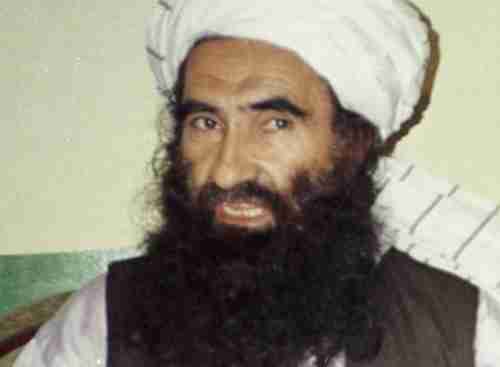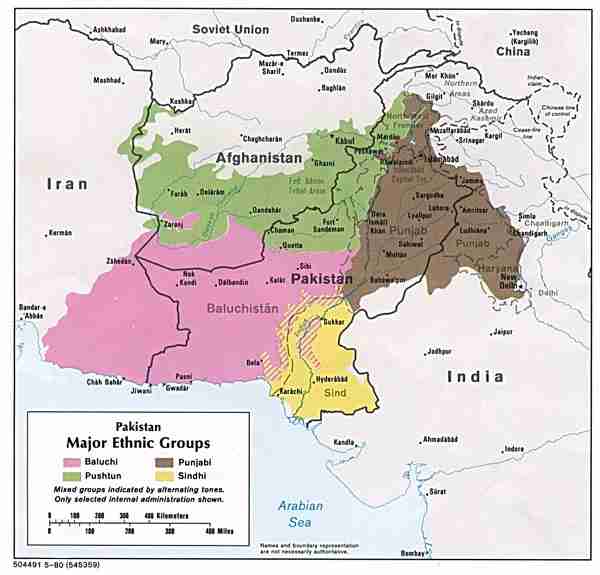
Dynamics

|
Generational Dynamics |
| Forecasting America's Destiny ... and the World's | |
| HOME WEB LOG COUNTRY WIKI COMMENT FORUM DOWNLOADS ABOUT | |
The Haqqani Network and the Pashtuns
This morning's key headlines from GenerationalDynamics.com
 |
The Obama administration is deeply divided over whether to designate the Pakistan-based Haqqani network as a terrorist group. A report on the administration's decision is due to Congress by September 9, and Secretary of State Hillary Clinton has stated that the deadline will be met, one way or the other. The Haqqani Network is a Taliban offshoot that is leading the fight against the government of Afghanistan and the Nato forces in Afghanistan. A number of US military commanders have indicated that the Haqqani Network is the most dangerous and most organized terrorist organization in the Taliban.
The designation of the Haqqani Network as a terrorist organization should be an easy call, but there are broader issues. American officials in the past have accused Pakistan's Inter-Services Intelligence (ISI) agency of having ties to the Haqqani Network, and even of supplying arms and money to it. The Pakistanis deny this, saying that ISI links were cut long ago. And so a designation of the Haqqani Network as a terrorist organization might once again cause a major rift in relations with Pakistan, at a time just after last year's rift was healed and the supply route through Pakistan was reopened, as we reported in July. Pakistan Observer
Part of the debate is over whether the terror designation will actually accomplish anything. A recent report calls the Haqqani network “an efficient, trans-national jihadi industry” that has “penetrated key business sectors, including import-export, transport, real estate and construction in Afghanistan, Pakistan, the Arab Gulf and beyond." Proponents of the designation claim that these business interests will be undermined, but others in the White House point out that several Haqqani leaders have already been designated individually as terrorists, and that hasn't affected their business interests. Washington Post
The Haqqani Network is the culmination of how I've been describing for years the Afghanistan war in terms of Generational Dynamics theory.
President Obama initiated the "surge" into Afghanistan in 2009 with the intent of duplicating the success of President Bush's "surge" strategy into Iraq in 2007. However, as I've written several times in the past, the generational situation in Afghanistan is very different than in Iraq, and there are significant differences that will prevent the surge strategy from working there.
 |
Iraq's last generational crisis war was the Iran/Iraq war of the 1980s, meaning that Iraq is in a generational Awakening era, not very interested in war. This was an external war, fought with Iran, that brought the Iraqi people together against a common foe. When al-Qaeda in Iraq started operating, they were thrown out by people on both sides of the Sunni/Shia sectarian divide, since the two sides were still united. Thus, America's 2007 "surge" was very effective in helping them eject al-Qaeda in Iraq. From 2007: "Iraqi Sunnis are turning against al-Qaeda in Iraq"
Afghanistan's last generational crisis war was the bloody civil war of the 1990s, climaxing in 1996. So Afghanistan is at the end of a generational Recovery era, and is just entering a generational Awakening era, and from that point of view, the country is similar to Iraq. But the huge difference is that Afghanistan's crisis war was a civil war.
During the extremely bloody ethnic civil war that the Afghans fought in the 1990s, the Shia Muslim Hazaris and the Sunni Muslim Pashtuns were on opposite sides, and the ethnic groups were torturing and killing each other within Afghanistan. The Hazari and the Pashtuns are going to continue to see each other as the enemy, and they can never come together and see the Haqqani network as a common enemy, in the way that the Iraqis saw al-Qaeda in Iraq as a common enemy.
Even despite all that, things might settle down in Afghanistan, if it weren't for one more major problem. The Taliban are Pashtuns. The Haqqani Network are Pashtuns. The Pashtuns live in a broad area that spans Afghanistan, Pakistan's tribal area, and Pakistan's northwest, as you can see from the map above, where the Pashtuns are shown in green.
The additional major problem is that the Pashtuns in Pakistan are on a different generational timeline than the Pashtuns in Afghanistan. Pakistan's last crisis war was Partition, the 1947 partitioning of the Indian subcontinent into Pakistan and India. So the Pakistani Pashtuns are deep into a generational crisis era, and the Haqqani Network are Pakistani Pashtuns, able to move freely across the border between Pakistan and Afghanistan.
So we have a situation where Afghanistan is entering a generational Awakening era, and has little desire for a bloody war. Indeed, Afghan president Hamid Karzai is a Pashtun who has close relations with the Hazaris. But the Pakistani-based Haqqani Network wants a war, and believe that a Pashtun victory will give them control of the entire region.
I keep reading nonsense that various American officials are hoping that the Taliban will agree to a negotiated truce with Nato. This is so absurd that it's laughable. Yes, the Afghan Taliban might agree to that, but there is no way in hell that the Haqqani Network or the Pakistani Taliban in general are going to have anything to do with a peace agreement with the infidels.
Finally, it's worth pointing out again, as I have in the past, that historically, Hindus have been allied with Shia Muslims in wars against Sunni Muslims, and this is the current trend in the region. In the coming Clash of Civilizations world war, it's expected that Pakistan will be allied with the Taliban (Pashtuns) in southern Afghanistan, and India will be allied with Iran and with the Hazaris and other Shia Muslims in northern Afghanistan.
(Comments: For reader comments, questions and discussion, see the 2-Sep-12 World View -- U.S. decision on Haqqani Network will affect Pakistan relations thread of the Generational Dynamics forum. Comments may be
posted anonymously.)
(2-Sep-2012)
Permanent Link
Receive daily World View columns by e-mail
Donate to Generational Dynamics via PayPal
Web Log Summary - 2016
Web Log Summary - 2015
Web Log Summary - 2014
Web Log Summary - 2013
Web Log Summary - 2012
Web Log Summary - 2011
Web Log Summary - 2010
Web Log Summary - 2009
Web Log Summary - 2008
Web Log Summary - 2007
Web Log Summary - 2006
Web Log Summary - 2005
Web Log Summary - 2004
Web Log - December, 2016
Web Log - November, 2016
Web Log - October, 2016
Web Log - September, 2016
Web Log - August, 2016
Web Log - July, 2016
Web Log - June, 2016
Web Log - May, 2016
Web Log - April, 2016
Web Log - March, 2016
Web Log - February, 2016
Web Log - January, 2016
Web Log - December, 2015
Web Log - November, 2015
Web Log - October, 2015
Web Log - September, 2015
Web Log - August, 2015
Web Log - July, 2015
Web Log - June, 2015
Web Log - May, 2015
Web Log - April, 2015
Web Log - March, 2015
Web Log - February, 2015
Web Log - January, 2015
Web Log - December, 2014
Web Log - November, 2014
Web Log - October, 2014
Web Log - September, 2014
Web Log - August, 2014
Web Log - July, 2014
Web Log - June, 2014
Web Log - May, 2014
Web Log - April, 2014
Web Log - March, 2014
Web Log - February, 2014
Web Log - January, 2014
Web Log - December, 2013
Web Log - November, 2013
Web Log - October, 2013
Web Log - September, 2013
Web Log - August, 2013
Web Log - July, 2013
Web Log - June, 2013
Web Log - May, 2013
Web Log - April, 2013
Web Log - March, 2013
Web Log - February, 2013
Web Log - January, 2013
Web Log - December, 2012
Web Log - November, 2012
Web Log - October, 2012
Web Log - September, 2012
Web Log - August, 2012
Web Log - July, 2012
Web Log - June, 2012
Web Log - May, 2012
Web Log - April, 2012
Web Log - March, 2012
Web Log - February, 2012
Web Log - January, 2012
Web Log - December, 2011
Web Log - November, 2011
Web Log - October, 2011
Web Log - September, 2011
Web Log - August, 2011
Web Log - July, 2011
Web Log - June, 2011
Web Log - May, 2011
Web Log - April, 2011
Web Log - March, 2011
Web Log - February, 2011
Web Log - January, 2011
Web Log - December, 2010
Web Log - November, 2010
Web Log - October, 2010
Web Log - September, 2010
Web Log - August, 2010
Web Log - July, 2010
Web Log - June, 2010
Web Log - May, 2010
Web Log - April, 2010
Web Log - March, 2010
Web Log - February, 2010
Web Log - January, 2010
Web Log - December, 2009
Web Log - November, 2009
Web Log - October, 2009
Web Log - September, 2009
Web Log - August, 2009
Web Log - July, 2009
Web Log - June, 2009
Web Log - May, 2009
Web Log - April, 2009
Web Log - March, 2009
Web Log - February, 2009
Web Log - January, 2009
Web Log - December, 2008
Web Log - November, 2008
Web Log - October, 2008
Web Log - September, 2008
Web Log - August, 2008
Web Log - July, 2008
Web Log - June, 2008
Web Log - May, 2008
Web Log - April, 2008
Web Log - March, 2008
Web Log - February, 2008
Web Log - January, 2008
Web Log - December, 2007
Web Log - November, 2007
Web Log - October, 2007
Web Log - September, 2007
Web Log - August, 2007
Web Log - July, 2007
Web Log - June, 2007
Web Log - May, 2007
Web Log - April, 2007
Web Log - March, 2007
Web Log - February, 2007
Web Log - January, 2007
Web Log - December, 2006
Web Log - November, 2006
Web Log - October, 2006
Web Log - September, 2006
Web Log - August, 2006
Web Log - July, 2006
Web Log - June, 2006
Web Log - May, 2006
Web Log - April, 2006
Web Log - March, 2006
Web Log - February, 2006
Web Log - January, 2006
Web Log - December, 2005
Web Log - November, 2005
Web Log - October, 2005
Web Log - September, 2005
Web Log - August, 2005
Web Log - July, 2005
Web Log - June, 2005
Web Log - May, 2005
Web Log - April, 2005
Web Log - March, 2005
Web Log - February, 2005
Web Log - January, 2005
Web Log - December, 2004
Web Log - November, 2004
Web Log - October, 2004
Web Log - September, 2004
Web Log - August, 2004
Web Log - July, 2004
Web Log - June, 2004